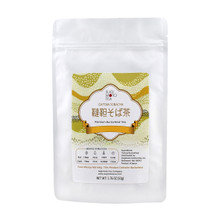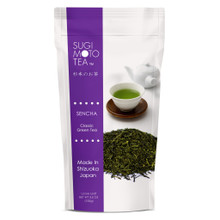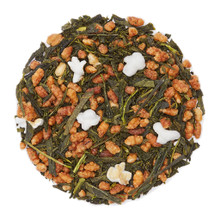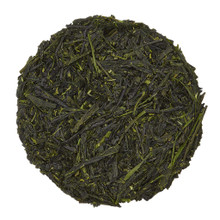Golden Week | Japanese Holidays Guide
With Golden Week 2020 fast approaching, here’s a handy guide that tells you everything you need to know about this cluster of holidays in Japan.
Guide Contents:
- What Is Golden Week?
- Why Is It Celebrated?
- Why Is It Called Golden Week?
- How Will COVID-19 Affect Golden Week 2020?
- Can I Visit Japan for Golden Week 2020?
Golden Week 2020 | Everything You Need to Know
What Is Golden Week?
Golden Week (ゴールデンウィーク) is a week-long celebration of four national holidays in Japan. It usually starts at the end of April and runs until the beginning of May.
Golden Week is among the busiest times of the year for the country, along with Obon week (August) and New Year’s (January). During this time, it is typical for people to have the entire week off work. Sometimes, they even extend their holiday a few days before or after Golden Week to celebrate with their families, travel, and rest.
The number of days during Golden Week vary each year, with the average at around six to eight days. Yet, there have been certain cases when it was extended for up to 10 days. Take, for example last year, Golden Week 2019.
Golden Week 2019 Timeline
- April 27 (Saturday) — Start of Golden Week
- April 28 (Sunday)
- April 29 (Monday) — Holiday 1: Showa Day
- April 30 (Tuesday)
- May 1 (Wednesday) - *New Emperor Accession Celebration (special holiday)
- May 2 (Thursday)
- May 3 (Friday) — Holiday 2: Constitution Day
- May 4 (Saturday) — Holiday 3: Greenery Day
- May 5 (Sunday) — Holiday 4: Children’s Day
- May 6 (Monday) — Substitute Holiday
*In 2019, the Japanese government designated May 1 as a special one-off holiday to commemorate Crown Prince Naruhito’s ascension to the throne after his father’s abdication.
As you can see from the timeline, April 30 and May 2 were the only two remaining workdays, but they were both sandwiched by two holidays. As a result, both of these days were also designated as holidays.
Trivia: China also celebrates a ”Golden Week” twice a year — for Chinese New Year in January/February and during October. However, all similarities end with the name as the Chinese and Japanese versions of Golden Week are completely unrelated.
Why Is Golden Week Celebrated?
The four Golden Week holidays commemorate different milestones in the country’s history. Each holiday has a designated date as declared in the Act on National Holidays:
Showa Day (April 29)
Kicking off the start of the Golden Week, Showa Day (昭和の日) falls on the birthday of Emperor Hirohito (April 29, 1901), who ruled during the Showa Era — the period in history when WWII took place.
Beyond his birthday, this holiday acknowledges the painful events of WWII and the country’s role in it. It also commemorates how Japan rose from the ashes and rebuilt the country after the war. It serves as a reminder to the current generation to strive to create a better future for everyone.
In 1989, after Emperor Hirohito’s death, the Japanese stopped celebrating Showa Day and replaced it with Greenery Day as a nod to Hirohito’s love of nature. In 2007, Showa Day was reinstated and continues to be celebrated to this day, while Greenery Day was moved to May 4th. Before then, May 4th was a sandwiched holiday.
Constitution Memorial Day (May 3)
Constitution Day (憲法記念日) marks the beginning of democracy in Japan. On May 3, 1947, the new Japanese constitution (which is still being used at present) took effect.
The new constitution was created after WWII during the American occupation of Japan as part of the reforms the Americans (led by General Douglas MacArthur) helped to enact. Some of the primary changes include:
- Stripping the emperor of political powers and designating him as a figurehead — the “symbol of the state and of the unity of the people” (Article 1)
- Japan was also prohibited from starting wars (Article 9)
Greenery Day (May 4)
Greenery Day (みどりの日) is all about celebrating nature. On this day, people visit parks and gardens and enjoy everything nature has to offer. It’s also typical for some people to visit the countryside during this time.
This holiday has had a complicated history because of Japan’s turbulent relationship with Emperor Hirohito and his role in WWII. After his death in 1989, the government decided to remove Showa Day and rename it Greenery Day. This was done in an effort to remove any direct reference to Hirohito while still observing the holiday since Greenery Day indirectly referenced his love for plants.
However, as mentioned previously, Showa Day was reinstated in 2007 so Greenery Day was moved from April 29 to May 4.
Children’s Day (May 5)
While Children’s Day (子供の日) wasn’t officially introduced as a national holiday until 1948, the Japanese have been celebrating it throughout history, but with two different holidays — Boy’s Day (May 5) and Girl’s Day (March 3). Children’s Day combined these two holidays into one. On this day, people celebrate children and wish for their good health and success as they grow.
One of the most iconic images of Japan in photographs actually comes from this day — the koinobori (鯉のぼり). Koinobori are carp-shaped streamers hung on poles or roofs to represent each member of the family. Bigger carps represent the parents while smaller carps representing the children.
Why Is It Called Golden Week?
According to the Ministry of Foreign Affairs Japan, the term “Golden Week” was coined by film producers to encourage people to take the “golden” opportunity to see a movie. Later on, the term started being used to refer to the successive holidays that happened during this period.
A similar version of the origin story of Golden Week’s name points to a Daei Film Company executive as the specific person who came up with the name since there was a noticeable rise in movie ticket sales during those string of holidays. The executive was supposedly inspired by the radio slang “Golden Time,” which referred to the time period that receives the highest ratings.
How Will COVID-19 AFFECT Golden Week 2020?
Golden Week in 2020 will be a particularly unusual one because of the ongoing COVID-19 crisis. Since early April, Japan has been under a quasi-lockdown, officially referred to as a “state of emergency.” This gives governors the authority to close down schools and to request that all food-service and entertainment businesses close, but It does not give them the power to close businesses or keep citizens from leaving their homes.
While the state of emergency is expected to end in May, there are already growing concerns about how the upcoming Golden Week can affect this. The virus could spread during this time as the holidays may encourage people to travel to their hometowns and abroad.
In response, several government officials, including Prime Minister Shinzo Abe, have shared their proposals to prevent the spread of COVID-19 during Golden Week:
- Golden Week Tokyo — Yuriko Koike, governor of Tokyo, encouraged businesses to provide a 12-day Golden Week break starting April 25 (Saturday). She discouraged Tokyo residents from leaving their homes and the capital.
- Prime Minister Shinzo Abe also encouraged people to just video call their families instead of traveling.
Can I Visit Japan for Golden Week 2020?
Visiting Japan during Golden Week is a wonderful time to experience local culture through these time-honored holidays. However, there are also certain considerations you have to take into account.
Because of the surge in travel and festivities during Golden Week, Japan can get incredibly crowded at this time. Since Japanese people are also taking time off work, there are more people visiting gardens, landmarks, and parks. Aside from that, hotel and transportation prices also surge.
For 2020, another obstacle foreign tourists may face is the travel ban set by the Japanese government that affects certain foreigners, including:
- Chinese passport holders whose passport was issued at Hubei or Zhejiang of the People's Republic of China
- Foreigners, who 14 days before arrival, have stayed in any one of the 70+ countries Japan has set a travel ban in an effort to prevent the spread of COVID-19.
Note: This includes foreign nationals who have been to the U.S. 14 days before their arrival in Japan.
Foreigners who fit the criteria mentioned in the travel ban won’t be allowed to enter the country.
Aside from the travel ban, several Golden Week events have also been canceled due to COVID-19. For example, the Tokyo Skytree Town Carp Streamer (Koinobori) Festival 2020 for Children’s Day, will not be happening this year.
Many holidays and traditions around the world have been up-rooted by COVID-19. It looks like Golden Week 2020 will experience the same disruptions. However, it is important to remember that holidays exist to offer time to reflect, whether that be on past history or in reverence of a person or group of people. The same can be said for Golden Week holidays. This year offers a unique opportunity for reflective celebration.
READ NEXT: 11 Best Japanese Gardens In The US

















































